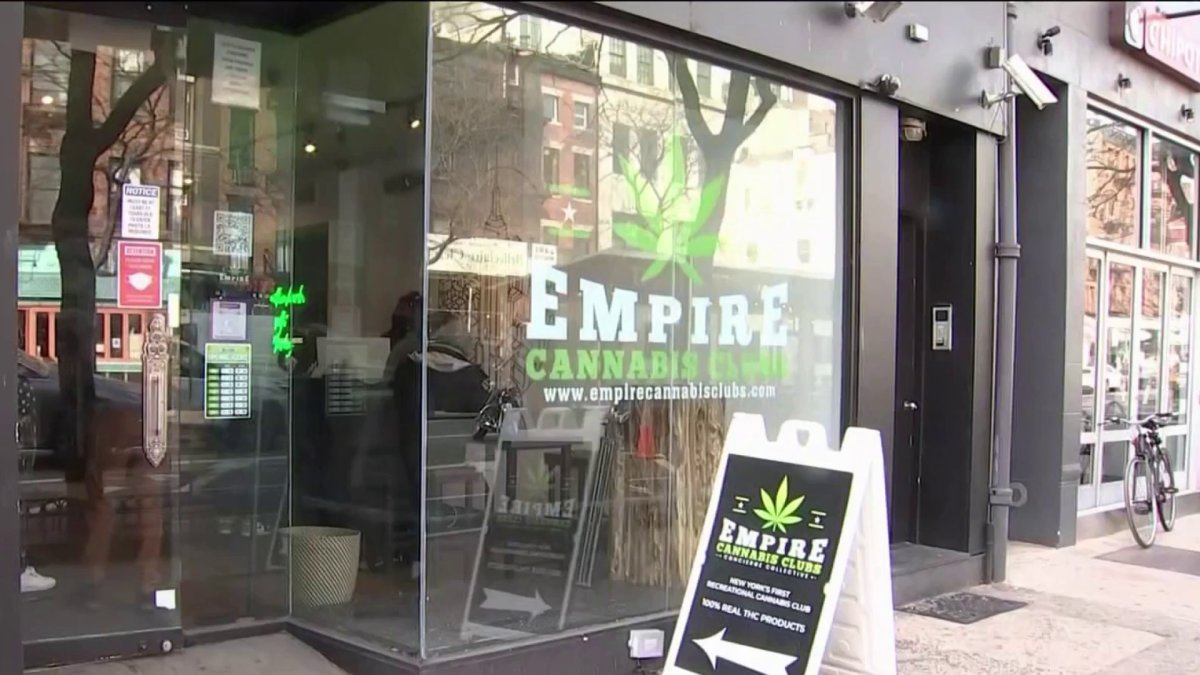
NY’s cannabis regulator says storefronts already accepting payment for marijuana are jumping the gun, but plenty of businesses are doing it. How do they get away with it? Chris Glorioso found weed entrepreneurs daring New York to shut them down, because they believe the licensing process is rigged to favor big business.
If you ask New York’s top cannabis regulator, any storefront accepting payment for pot is jumping the gun. Albany is still ironing out details for the state’s recreational adult use cannabis industry and most licenses have yet to be handed out.
Despite that, dozens of businesses are already operating storefronts that offer cannabis to customers in exchange for cash payments.
”That activity is illegal,” said Chris Alexander, Executive Director of the Office of Cannabis Management (OCM). “The law is very clear that in order to sell cannabis in the state of New York you have to have a license provided by this office.”
But Julio Brinez and Lenore Elfand, co-founders of Empire Cannabis Club, say their storefront isn’t technically selling pot, so they don’t need a license under New York’s decriminalization law. Walk into one of Empire’s two locations in Manhattan and you’re immediately asked to buy a club membership. That membership, they say, gives customers the right to shared purchase of the cannabis flower.
Get Tri-state area news and weather forecasts to your inbox. Sign up for NBC New York newsletters.
“You can pay me if I don’t make a profit, and that’s exactly what we’re doing here,” Elfand said.
“I am entitled to make a living off of cannabis,” said Brinez. “I have the right to thrive in this industry.”
Steve Zissou, an attorney for Empire Cannabis Club, says the business structure is perfectly permissible under New York’s new law, because the very definition of a “sale” has changed.
News
“This entity exists for one purpose. For the benefit of the club members. To provide them with a safe, tested, reliable product,” Zissou said. “As the club members increase, then the cost to everybody goes down.”
Though OCM recently sent Cease and Desist letters to Empire Cannabis Club and multiple other storefronts offering marijuana to the public, many of the businesses show no sign of backing down.
Brinez and Elfand say their families were scarred by the War on Drugs. Brinez says he spent three years in prison for growing cannabis plants. Elfand says her father and two brothers did between two and ten years behind bars. They say that experience – being punished for conduct that is now legal - puts them on a moral high ground against state regulators.
“My brothers and Julio did time for this. And when the government figured out they could make money off of it, now it’s ok?”
Alexander said the state’s licensure process does prioritize small businesses and applicants who have been harmed by old cannabis convictions, but there is no excuse for jumping the gun with unlicensed transactions.
“We have broad action planned and scheduled to take and remove these businesses from operation,” Alexander said.
Meanwhile, Senator Diane Savino (D – Staten Island) has introduced a bill that would clarify, structuring a cannabis business as a club does not make it legal.
“Some attorneys, district attorneys have said they think there is a grey area under the law on this so we want to introduce legislation to tighten up the statute. To erase that grey area. To make it clear that this activity is absolutely outside the law,” Savino said. Her bill would also ban individuals from applying for future licenses if they defy state orders to close an unlicensed cannabis operation.
Elfand said the legislation sounds like a rollback of New York’s cannabis law.
“They just decriminalized it. And she wants to recriminalize it.”